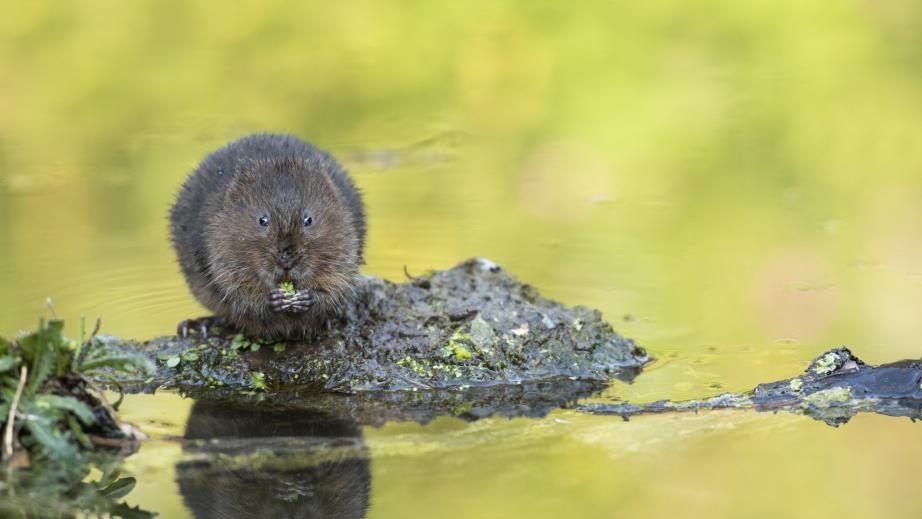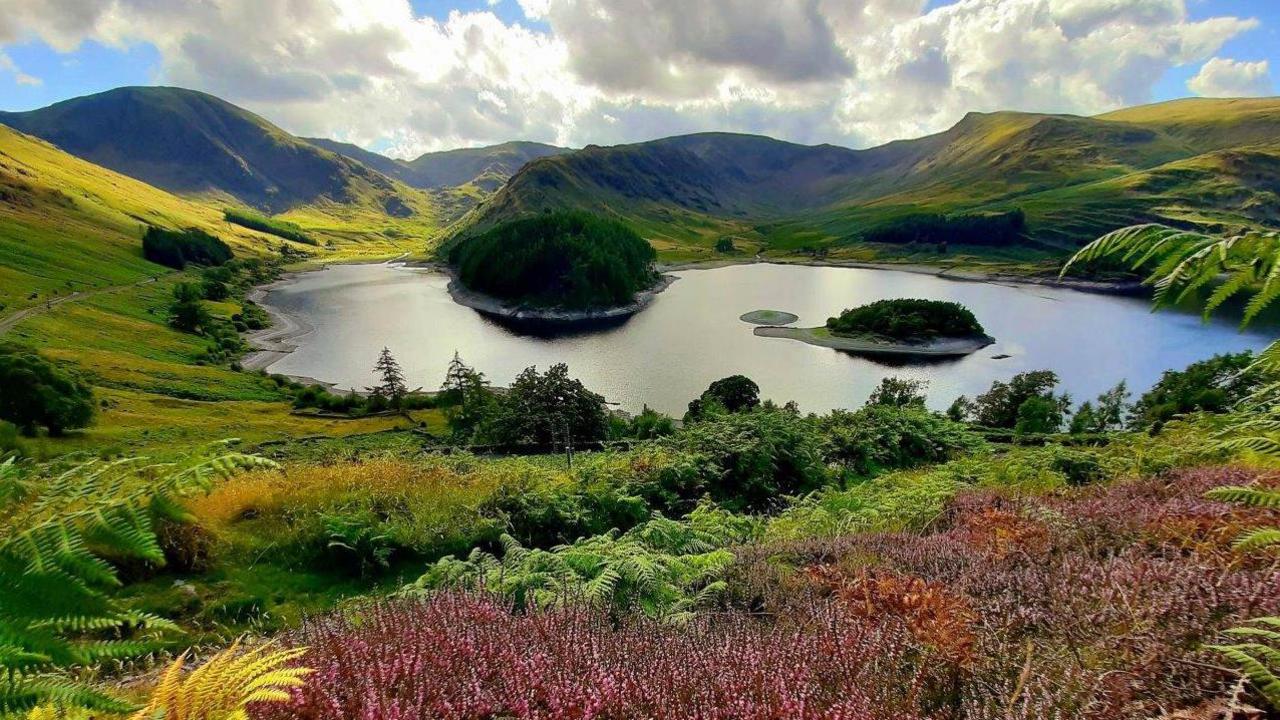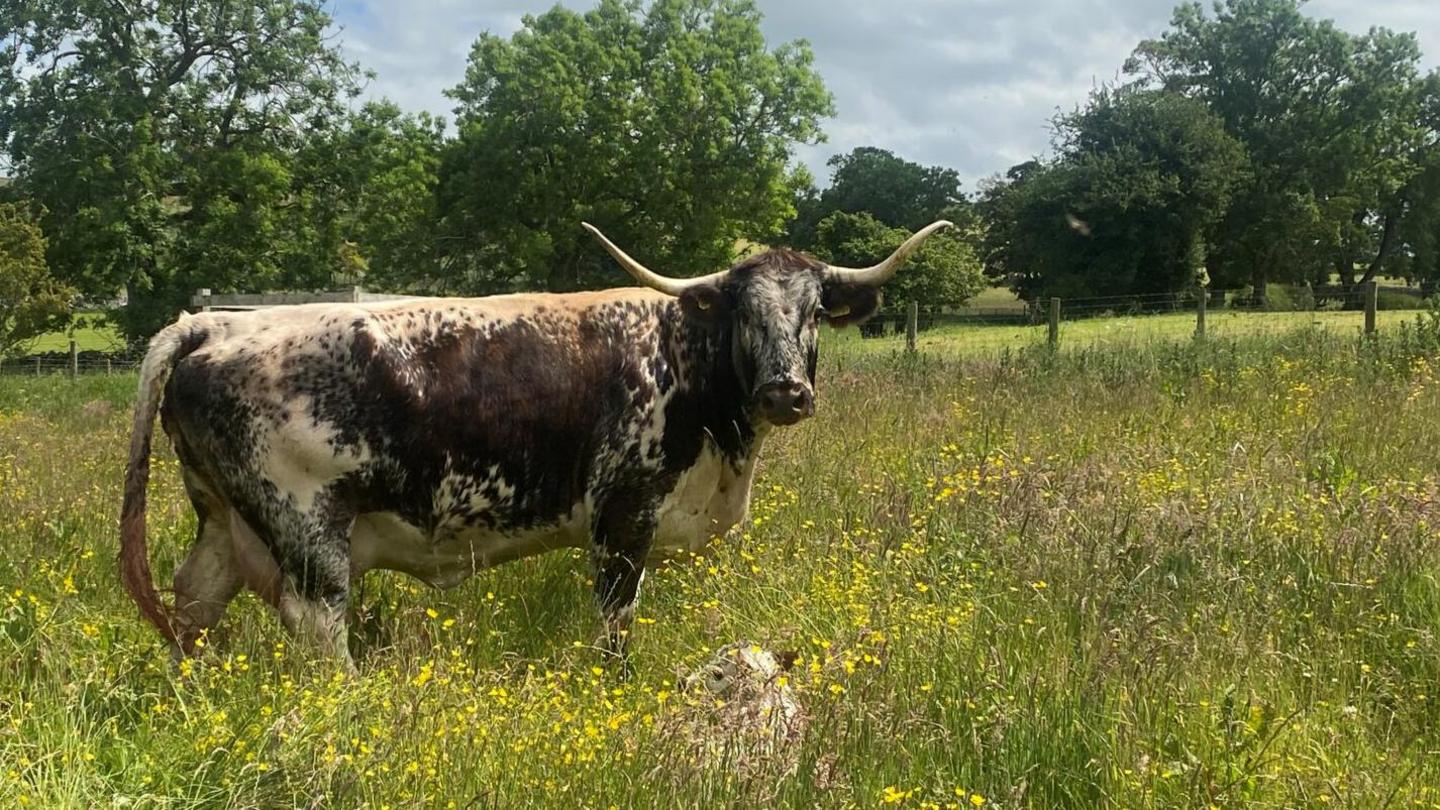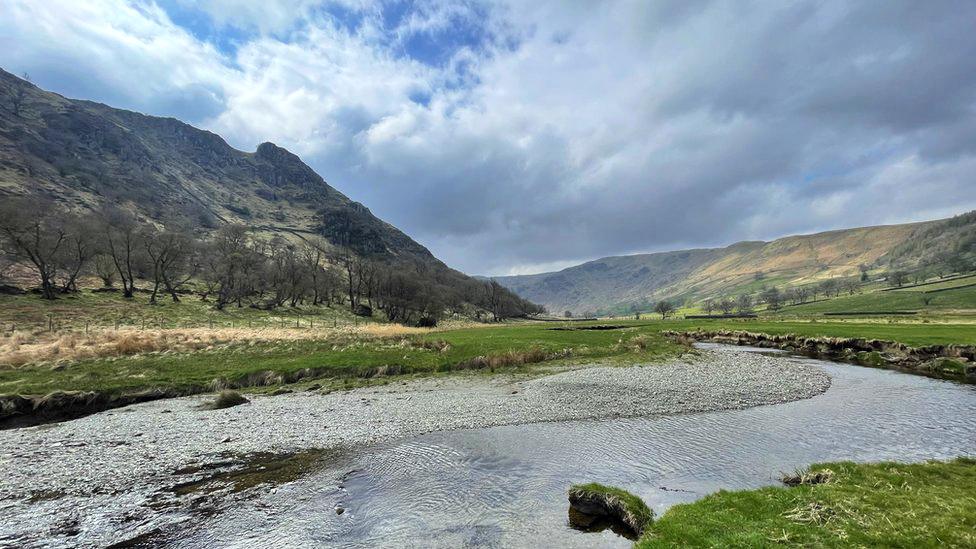Cumbria wildlife havens and habitats boosted by £4m

One of the first projects is to increase numbers of water voles which have been in decline
At a glance
Landscapes in Cumbria to be enhanced as part of a £4m project
More than 84,000 acres of woodland and wetlands will be improved
The Cumbria Connect scheme will also create 10 new jobs
The first project will involve boosting endangered water vole numbers
- Published
More than £4m is being spent restoring some of Cumbria's largest habitats.
Landowners, farmers and conservationists are working together to improve more than 84,000 acres (34,000 hectares) of woodland, peatland and wetlands.
The group, Cumbria Connect, said its first project would be to boost water vole populations, one of the county's most threatened native species.
A spokesman said the project would "breathe new life into cherished landscapes".

The project will also create jobs in conservation advice for land managers and scientific research
As well as enhancing the fells, ancient woodlands, peatlands, lakes and rivers, the project will try to boost red squirrel populations as well as bird species such as ring ouzels and pied flycatchers.
The project will create 10 new jobs in the fields of conservation advice for land managers and scientific research.
It will also offer opportunities to PhD students and support farming apprenticeships.
David Morris, RSPB area manager for Cumbria, said: “Traditionally, the landscape has hosted a diverse agricultural economy with mixed farming practices, creating a rich rural landscape.
"However, post-war agricultural policies intensified land management and impacted vulnerable habitats, the wildlife that lives in them and how the landscape functions ecologically for those who live, work and visit here too.
"This programme will harness the collective knowledge and resources of the partnership to forge a path to redress some of that.”
'Biodiverse landscape'
Organisations involved include the Orton Fells Farm Cluster, Natural England and the Lowther Estate.
The funding for the scheme has been secured from the Endangered Landscapes Programme. , external
Tim Winder, a farmer and member of the Orton Fells Farm Cluster, said: “Our work is about combining the best of modern farming and traditional practices to ensure we produce healthy, sustainable food alongside a rich biodiverse landscape."

Longhorn cattle help conserve habitats with their varied grazing
Follow BBC North East & Cumbria on Twitter, external, Facebook, external and Instagram, external. Send your story ideas to northeastandcumbria@bbc.co.uk, external.
Related topics
Related Internet Links
- Published25 April 2023
